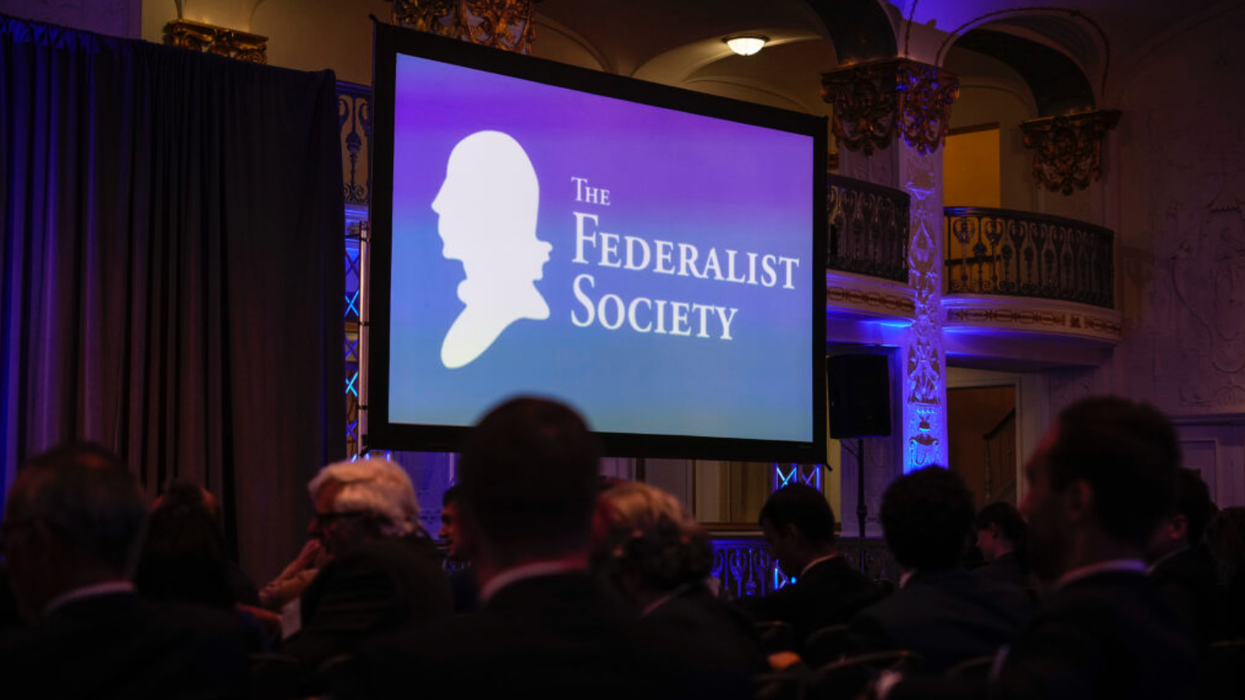Last week, the Court of International Trade delivered a blow to Donald Trump’s global trade war. It found that the worldwide tariffs Trump unveiled on “Liberation Day” as well his earlier tariffs pretextually aimed at stopping fentanyl coming in from Mexico and Canada (as if) were beyond his authority. The three-judge panel was surely right about the Liberation Day tariffs and probably right about the fentanyl tariffs, but there’s a better case that, while bad policy, the fentanyl tariffs were not unlawful.
Please forgive a lengthy excerpt of Trump’s response on Truth Social, but it speaks volumes:
“How is it possible for (the CIT judges) to have potentially done such damage to the United States of America? Is it purely a hatred of ‘TRUMP?’ What other reason could it be? I was new to Washington, and it was suggested that I use The Federalist Society as a recommending source on Judges. I did so, openly and freely, but then realized that they were under the thumb of a real ‘sleazebag’ named Leonard Leo, a bad person who, in his own way, probably hates America, and obviously has his own separate ambitions. … In any event, Leo left The Federalist Society to do his own ‘thing.’ I am so disappointed in The Federalist Society because of the bad advice they gave me on numerous Judicial Nominations. This is something that cannot be forgotten!”
Let’s begin with the fact that Trump cannot conceive of a good explanation for an inconvenient court ruling other than Trump Derangement Syndrome. It’s irrelevant that the International Emergency Economic Powers Act, the 1977 law the administration invoked to impose the relevant tariffs, does not even mention the word “tariff” or that Congress never envisioned the IEEPA as a tool for launching a trade war with every nation in the world, the “Penguin Islands” included. Also disregard the fact that the decision was unanimous and only one of the three judges was appointed by Trump (the other two were Reagan and Obama appointees). (The decision has been paused by an appeals court.)
Trump is the foremost practitioner of what I call Critical Trump Theory — anything bad for Trump is unfair, illegitimate and proof that sinister forces are rigging the system against him. No wonder then that Trump thinks Leonard Leo, formerly a guiding light at the Federalist Society, the premier conservative legal organization, is a “sleazebag” and “bad person.” Note: Leo is neither of those things.
But Trump’s broadsides at Leo and the Federalist Society are portentous. Because Congress is AWOL, refusing to take the lead on trade (and many other things) as the Constitution envisions, it’s fallen to the courts to restrain Trump’s multifront efforts to exceed his authority. That’s why the White House is cynically denouncing “unelected” and “rogue” judges on an almost daily basis and why Trump’s political henchman, Stephen Miller, is incessantly ranting about a “judicial coup.”
The supreme, and sometimes seemingly sole, qualification for appointments to the Trump administration has been servile loyalty to Trump. But that ethos is not reserved for the executive branch. Law firms, elite universities and media outlets are being forced to kneel before the president. Why should judges be any different?
Trump has a history of suggesting “my judges” — i.e., his appointees — should be loyal to him. That’s why he recently nominated Emil Bove, his former personal criminal lawyer turned political enforcer at the Department of Justice, for a federal judgeship.
The significance of Trump’s attack on the Federalist Society and Leo, for conservatives, cannot be exaggerated. The legal movement spearheaded by the Federalist Society has been the most successful domestic conservative project of the last century. Scholarly, civic-minded and principled, the Federalist Society spent decades developing ideas and arguments for re-centering the Constitution in American law. But now Trump has issued a fatwa that it, too, must bend the knee and its principles to the needs of one man. The law be damned, ruling against Trump is ingratitude in his mind.
Speaking of ingratitude, the irony is that the Federalist Society deserves a lot of credit — or blame — for Trump being elected in the first place. In 2016, the death of Antonin Scalia left a vacancy on the Supreme Court. Many conservatives did not trust Trump to replace him. To reassure them, Trump agreed to pick from a list of potential replacements crafted by the Heritage Foundation and Federalist Society. That decision arguably convinced many reluctant conservatives to vote for him.
In the decade since, the Heritage Foundation has dutifully reinvented itself in Trump’s image. The Federalist Society stayed loyal to its principles, and that’s why the Federalist Society is in Trump’s crosshairs.
Jonah Goldberg is editor-in-chief of The Dispatch and the host of The Remnant podcast. His Twitter handle is @JonahDispatch.




















Trump & Hegseth gave Mark Kelly a huge 2028 gift